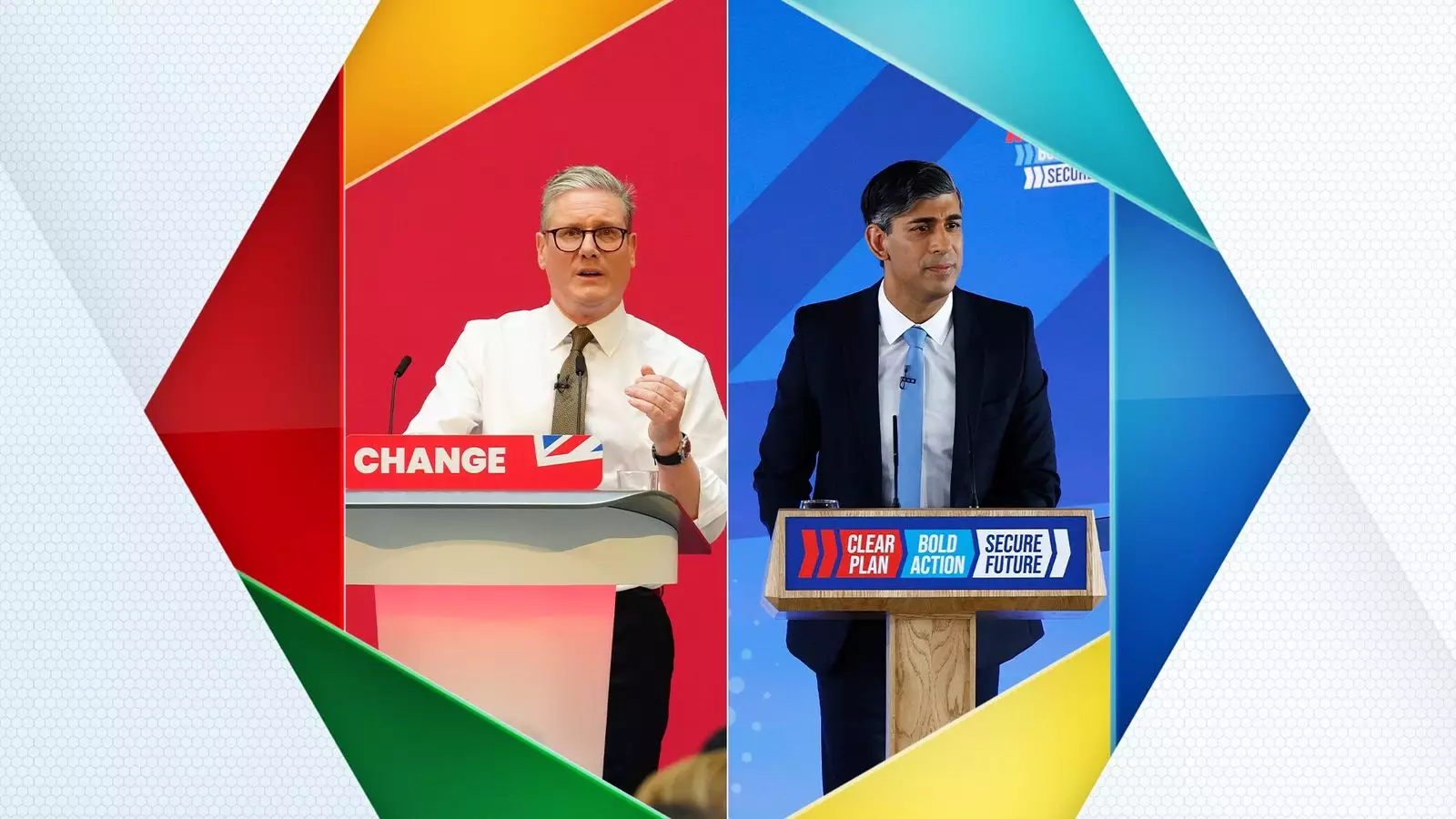The Institute for Fiscal Studies (IFS) has called out the major parties, both the Conservatives and Labour, for leaving voters in the dark regarding how they plan to fund their spending commitments. The IFS has described the information provided in their manifestos as “thin gruel” and criticized the lack of transparency in addressing challenges such as reducing NHS waiting lists. According to IFS director Paul Johnson, there is a “conspiracy of silence” from the main parties on how they intend to tackle the growing government debt levels and increasing tax burden.
Johnson warned that unless there is a significant increase in government debt or higher taxes, many public services will face cuts in the next parliament. He highlighted the rising debt interest spending and growing welfare budget due to the aftermath of the COVID-19 pandemic and the cost of living crisis following Russia’s invasion of Ukraine. With health spending on the rise, a growing defence budget, demographic changes, and the push towards net zero emissions, the public finances face a toxic mix of challenges.
The IFS director criticized the lack of fully costed manifestos from both main parties, pointing out that the presented information to voters creates a “knowledge vacuum”. Johnson noted that manifestos are not entirely costed and that the parties have not seriously addressed the need for tax increases to fund their spending commitments. He highlighted the Conservatives’ and Labour’s silence on a potential £10 billion a year tax rise through freezes to personal tax allowances and thresholds.
Both the Conservatives and Labour have been accused of avoiding serious proposals to increase taxes and keeping silent about their commitment to tax rises. The main parties have tied their hands on income tax, national insurance contributions (NICs), VAT, and corporation tax. Labour’s promise of no tax increases on working people has been criticized for ruling out essentially all tax rises, without clear explanations on how it would be achieved.
The IFS stated that the Liberal Democrats have presented bigger tax and spend policies compared to Labour and the Conservatives. However, it also noted that Reform UK and the Greens proposed unrealistic numbers, which could harm the political debate. Johnson emphasized the need for tough choices ahead, with high taxes, high debt, and struggling public services adding to the challenges faced by the government.
The analysis by the Institute for Fiscal Studies highlights the lack of transparency and concrete plans from the major parties regarding how they intend to fund their spending commitments. The growing government debt levels, increasing tax burden, and challenges in key sectors such as health and defense require a more detailed and realistic approach to fiscal management. The current “knowledge vacuum” presented to voters does not address the difficult choices needed to ensure a sustainable economic future.


Leave a Reply